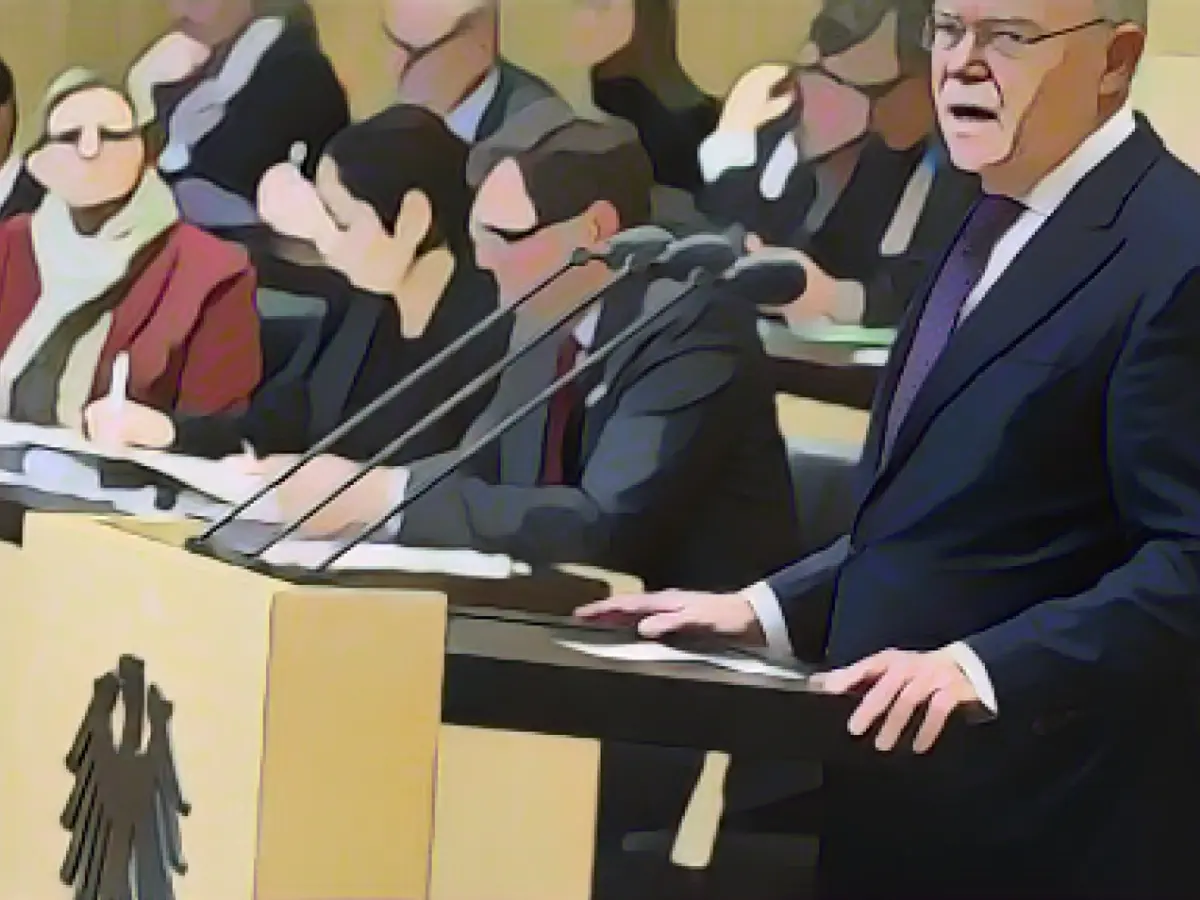Prime Minister - Weil urges reform of the debt brake
According to Lower Saxony's Minister President Stephan Weil, the debt brake for the federal and state governments must be fundamentally reformed. "We are now in a phase in which we have to set the course so that we can continue to be economically successful in the future and meet our climate protection obligations," said the SPD politician in an interview with the German Press Agency in Hanover. This requires an active state that supports companies but also cushions the social consequences. "The debt brake does not provide the right framework for this," said Weil.
The head of government explained that he was not calling for the instrument to be abolished. The idea that debt should not be increased arbitrarily has its place in the constitution. "But I very much hope that next year we can talk sensibly about how the weak points can be remedied," said Weil. We should no longer just focus on an annual emergency. "There are situations where we have to be prepared to commit ourselves over a longer period of time, because otherwise we can't secure the future."
Investments often only pay off after several years. This is why it is common for companies and private households to also use borrowed capital. "The debt brake does not provide for this possibility. It assumes that you pay for everything in cash, so to speak. That is unrealistic and unreasonable," said Weil.
He believes that this analysis is shared by the vast majority of the federal states, even across party lines, said the Vice-Chairman of the Conference of Minister Presidents. "The state premiers can see exactly what the consequences could be if many industries in Germany no longer have any prospects."
The German Trade Union Confederation also called for a move away from the debt brake on Thursday. "The ubiquitously visible dilapidated public infrastructure is the direct consequence of the debt brake," said DGB district head Mehrdad Payandeh and warned: "Austerity reflexes could break the back of our economy."
The debt brake does not allow the federal states to balance their budgets through debt and the federal government to take on net borrowing of 0.35 percent of gross domestic product - in 2022, this amounted to 12.5 billion euros.
With a view to 2024, Weil warned the federal government against making savings on joint federal-state programs. "I can only strongly advise against this. The federal states will not be able to compensate for all of this. That would have serious consequences in very different areas of society," he said.
The Lower Saxony budget for 2024 is not directly affected by the Karlsruhe budget ruling, according to which a reallocation of 60 billion euros for federal investments in climate protection and the restructuring of the economy is null and void. "But we are not in a position to prophetically predict the year 2024. Decisions made in Berlin as a result of the ruling could very well affect us," said Weil.
The SPD politician also accused the federal government of failing to prepare for the budget ruling. "I still don't understand why there was no plan B," he said.
The Federal Ministry of Finance is a very competent institution. Therefore, he could not explain why it had not developed a plan B as a precaution. "That is now taking its revenge," said Weil. "A great deal of confusion and uncertainty has arisen after there was already increasing unease among citizens over the course of the year. This is damaging democracy."
In the 2021 federal budget, 60 billion euros were approved as a coronavirus loan, but were later to be used for investments in climate protection and the modernization of the economy.
Read also:
- A clan member is punished here
- Traffic lawyer warns: Don't talk to the police!
- Will he be convicted as Jutta's murderer after 37 years?
- He also wanted to kill his cousin
- Lower Saxony's Minister President Stephan Weil advocates for a reform of the debt brake, stating that it does not provide the right framework for the future, especially considering the need for long-term investments and climate protection.
- DGB district head Mehrdad Payandeh shares Weil's sentiment, arguing that the debt brake is responsible for the dilapidated public infrastructure and could potentially harm the economy with austerity reflexes.
- In an interview with the German Press Agency in Hanover, Weil clarifies that he is not calling for the abolition of the debt brake, but rather the possibility to balance budgets through debt and commit to long-term projects without worrying about excess debt.
- The SPD politician emphasizes the importance of joint federal-state programs and warns against making cuts, stating that the federal states would not be able to compensate for all of the losses, which could have serious consequences for various societal sectors.
- The German Government, as reported by the Federal Ministry of Finance, has been criticized by Weil for lacking a plan B in response to the budget ruling, which could have prevented the resulting confusion and uncertainty affecting democracy.
Source: www.stern.de








